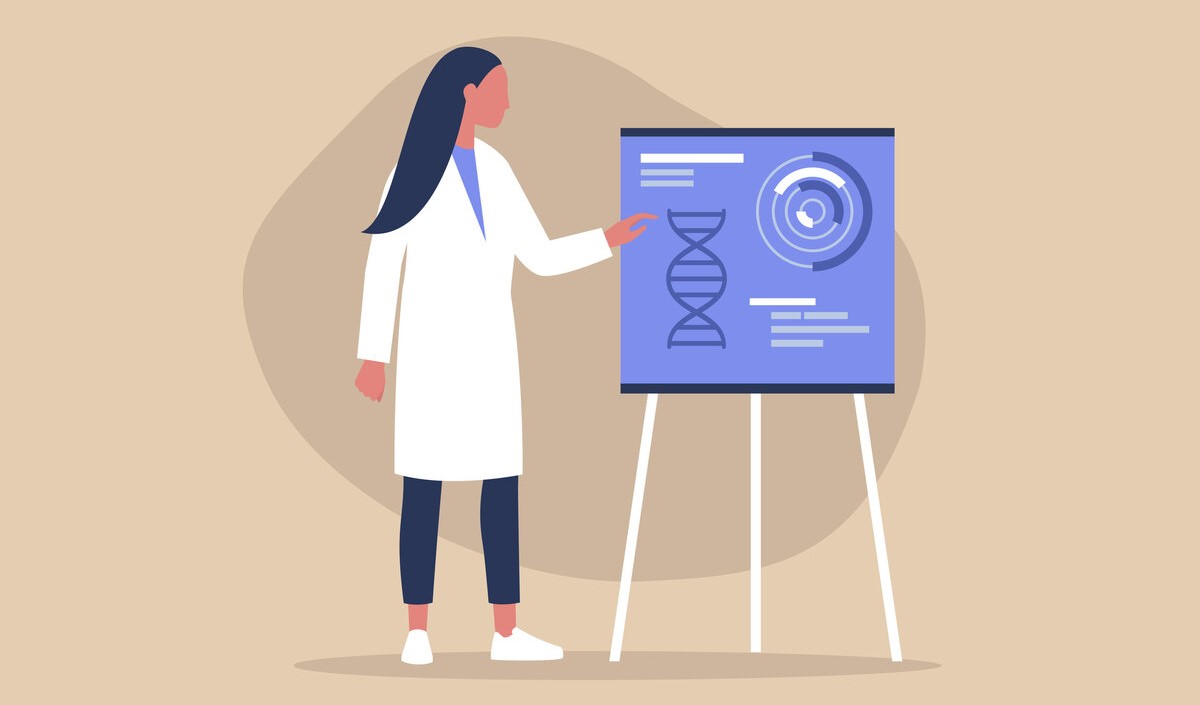
Understanding Alcohol Abuse vs. Alcohol Dependence
Photo from Getty Images
Originally Posted On: Defining Alcohol Abuse vs. Alcohol Dependence – Illuminate Recovery
There are many terms surrounding the use of alcohol in both healthy and unhealthy ways. In fact, it can be easy to feel practically bombarded by the constant messaging about alcohol. In one ear you hear that its “healthy in moderation,” while in the other ear you may hear that consuming a relatively small number of alcoholic drinks can be considered binge drinking. Similarly, you may hear terms like alcohol use, alcohol dependence, and substance use disorder, used in very different ways as often as you hear them used interchangeably.
The catch with these seemingly paradoxical terms is that sometimes both sides of an issue can be true. Such is the case with evidence suggesting that alcohol use being healthful for some and harmful for others. However, when it comes to all of the nominal terms of the addiction world, sorting out what’s what can be a bit confusing. This post will break down what you want to know about alcohol abuse vs. alcohol dependence.
What Is Considered Alcohol Dependence?
Alcohol dependence is when the body becomes physically dependent on alcohol. This is what we typically think of when we imagine someone who is entering – or would benefit from entering a rehabilitation program. A dependence on alcohol is no different than any other kind of physical or psychological dependency. As humans, we’re all dependent on water, food, and oxygen. Through life, a person may face a health challenge and become dependent to a varying degree on a drug, whether it makes them more comfortable or they couldn’t survive without it. A common dependence is caffeine. Some people can choose if they will or won’t have a cup of coffee when they wake up in the morning, while people who are dependent feel that they can’t function without that cup of joe. They need the caffeine and the ritual of coffee to get going, and automatically go through the motions of making coffee without thinking.
Of course, examples like coffee and appropriately-used prescription medicines are relatively harmless, but dependence to alcohol comes with serious consequences. A person who has become dependent on alcohol compulsively seeks out alcohol with little-to-no true choice in the matter. Simply put, they must drink to avoid noticeable, often dangerous consequences. They may experience negative symptoms of withdrawal, which can include shaking (“the shakes”), nausea and vomiting, violent mood swings, extreme fatigue, bladder and/or bowel incontinence, or even seizures that can result in injury or death.
In summation, the hallmarks of alcohol dependence are the compulsion to seek out, purchase, and habitually consume alcohol and experiencing withdrawal symptoms when forced to go without. People experiencing alcohol dependence need professional therapeutic help, in addition to medical supervision during the detox period.
What Is Considered Alcohol Abuse?
 Photo from Getty Images
Photo from Getty Images
You may be thinking – doesn’t abuse sound worse than dependence?
Ironically, in a way it does. However, that isn’t the case in terms of the definitions in the addiction world. Neither abuse nor dependence have a positive connotation, but far more people abuse alcohol than have alcohol dependence. For many people, partaking in alcohol abuse is revocable with changes in habits and lifestyle, and does not involve a medically supervised detox or a traditional stint in rehabilitation. However, this is not always the case and should be assessed by a professional.
The Role of Binge Drinking
Far more people abuse alcohol than realize it every day in the United States and around the world. This is because binge drinking is a form of alcohol abuse and it is easy to binge drink without realizing you are doing so. Here are the guidelines for drinking as laid out by the official research of the CDC:
- A single drink for an adult is one five-ounce glass of wine, a 12-ounce mug of beer, or 1.5 ounces of liquor.
- Moderate drinking for men is defined as two or fewer drinks per day.
- Moderate drinking for women is defined as one drink per day or fewer.
- Moderate drinking for senior citizens (people over the age of 65) is one drink per day or fewer.
- Binge drinking or heavy drinking for men is defined as five drinks or more in a given sitting.
- Binge drinking for men over the course of a week is defined as 15 drinks or more in seven days.
- Binge drinking for women is defined as four or more drinks in one sitting.
- Binge drinking for women over the course of a week is defined as 12 drinks or more in the course of a week.
- Binge drinking for people over 65 is also defined as four drinks per sitting or more than 12 drinks per week.
It is not difficult to see how many people binge drink, even if they only have “a couple of glasses” before bed or occasionally overdrink at social occasions. This becomes even more apparent when the strength of the drink is taken into account. For example, one drink is 1.5 ounces of hard liquor, otherwise known as a shot. Some cocktails contain three, four, or more drinks all in one. This can also be dependent on things like the percentage of beer being consumed and glass size for beer and wine. It is not a “one size fits all” issue, yet it is important for everyone, no matter their relationship with alcohol to be aware of these standards and how much alcohol they consume on a regular basis.
What Is the Main Difference Between Alcohol Abuse and Alcohol Dependence?
The main difference between alcohol abuse and alcohol dependence is the concept of choice. Someone who abuses alcohol can choose to do so. They can choose if and when to use alcohol, and will typically maintain some degree of awareness when they are drinking in excess. In other words, they know they are getting drunk, or have chosen to do so. Someone who suffers from alcohol dependence experiences less self-awareness and a small or non-existent degree of true choice. They drink to get drunk, whenever and however possible, for the reasons of feeling the effects of alcohol on the mind and body and avoiding symptoms of withdrawal.
With these things in mind, it must be noted, however, that people who abuse alcohol by binge drinking may occasionally feel that they have lost the autonomy of choice, or that they became so impaired while drinking that they no longer had control of how much they consumed. This does not make them alcohol dependent if it is an isolated event. It does carry certain warning signs of alcoholism if it happens recurrently or if the person frequently feels compulsive and out of control.
Is Alcohol Use Disorder the Same as Alcoholism?
You may be wondering – is alcohol use disorder the same as alcoholism? The short answer is yes. Alcoholism and alcohol use disorder are the same condition, and could in many cases also be described as alcohol dependency. The most common and widely accepted term in the modern day is substance use disorder. This term is often shortened into ‘SUD.’ However, alcoholism, alcohol use disorder, and alcohol dependency are also accepted in some settings. One benefit to using a term other than substance use disorder/SUD is that it is not specific to alcohol abuse but could include the consumption of drugs and other illicit substances.
As a rule, it is best to use a term that the person who is in treatment feels comfortable with, relates to, and self-identifies with.
Background on the Terminology and the DSM-5
 Photo from Getty Images
Photo from Getty Images
One reason there are so many various (and often confusing) terms for the use and abuse of alcohol is that the DSM-5 has changed its standard and terminology throughout the years. The DSM-5 stands for the fifth edition of the Diagnostic and Statistical Manual of Mental Disorders, a professional work that has been around since 1952. Every mental health professional, from Bachelor’s level social workers and therapists to MD psychiatrists are familiar with the DSM. It is very useful and is taken into consideration when people are in recovery from alcohol or drugs because it identifies the degree of their disordered behavior, in addition to co-occurring diagnoses.
Many people who are addicted to alcohol have other mental health issues happening in tandem, or even as a root cause. Previous editions of the DSM defined addictive behaviors as either abuse or dependence. As already discussed, abuse was/is considered more occasional and less severe than dependence, or as a precursor to becoming a full-blown addict. While the journey through active addiction can certainly occur that way, the latest edition of the DSM relies solely on the term “substance use disorder,” which can be tailored to “alcohol use disorder” for alcoholics. This is because it more broadly encompasses various addictive behaviors, like binge drinking, rather than treating them merely as precursors to a “real problem.”
Can You Be a Heavy Drinker and Not an Alcoholic?
Can you be a heavy drinker and not an alcoholic? Yes. The risk of making this statement, online or elsewhere, is that it can discourage people who are in active addiction not to seek treatment because they believe they are just heavy drinkers – not alcoholics. Therefore, let this be stated with a precursor: just because someone is not or is not yet a full-blown dependent alcoholic does not mean that they are not engaging in dangerous behaviors related to alcohol, nor that they would not benefit from rehabilitative treatment.
With that said, there are many reasons that people drink to excess and not all of them equal a diagnosis of substance use disorder. In fact, someone can use substances in a disordered way at times, but not because they are clinically addicted. For example, someone may binge drink to “fit in” with friends or coworkers. Someone may go through a period of life, often in early adulthood, where they drink to excess a few times, then realize that they do not like engaging in that behavior and stop. The bottom line? Drinking to excess is not healthy for anyone, even though some find it enjoyable in the moment.
Though occasionally abusing alcohol doesn’t always mean a person has addictive tendencies or will go on to struggle with addiction, it is likely an issue that needs to be dealt with to some degree, whether clinically or through self-work and habit changes.
Substance Use Disorders Have Many Names
 Photo from Getty Images
Photo from Getty Images
The terminology of alcohol addiction can be tricky, confusing, and a bit convoluted. On the subject of alcohol abuse vs. alcohol dependence you can remember that both are serious issues, but dependence, or “alcoholism”, is the more severe of the two, being closely related to out-of-control behavior and dangerous withdrawal symptoms. However, all of terms are somewhat outdated compared to the appropriate terminology of substance use disorder (SUD) or alcohol use disorder which encompasses a wider range of addictive behaviors.
Keep reading to learn more about recovering from alcoholism and please contact us anytime if you’d like to discuss how our program can help you or your loved one take the steps to overcome alcohol addiction.
